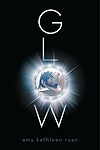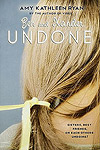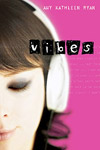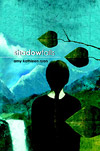That's a pretty big statement I just made, but I'm prepared to defend it.
 Frozen explodes one of the predominant fairy tale conventions of the twentieth century, (and probably every century before,) that the love and attraction of a man is the only thing that can save our heroine. The trope of the dashing prince, or rogue, falling instantly in love with the accursed princess dominates Cinderella, Snow White, Sleeping Beauty, and probably others. Even Tangled, which is a very well written movie, still operates under this convention, portraying romantic love as the saving force for our besotted princess. While the heroine of Tangled is hardly helpless, Frozen is the movie that recognizes the fallacy in fairytale logic. The two pronged idea of a man falling hopelessly in love with a woman based mostly on her beauty, and that without this love she is lost, amounts to an indoctrination into the patriarchy that has kept women vulnerable for centuries, and gives members of both sexes a very unrealistic idea of romantic love. Frozen begins to undo the damage.
Frozen explodes one of the predominant fairy tale conventions of the twentieth century, (and probably every century before,) that the love and attraction of a man is the only thing that can save our heroine. The trope of the dashing prince, or rogue, falling instantly in love with the accursed princess dominates Cinderella, Snow White, Sleeping Beauty, and probably others. Even Tangled, which is a very well written movie, still operates under this convention, portraying romantic love as the saving force for our besotted princess. While the heroine of Tangled is hardly helpless, Frozen is the movie that recognizes the fallacy in fairytale logic. The two pronged idea of a man falling hopelessly in love with a woman based mostly on her beauty, and that without this love she is lost, amounts to an indoctrination into the patriarchy that has kept women vulnerable for centuries, and gives members of both sexes a very unrealistic idea of romantic love. Frozen begins to undo the damage. Anna is our princess in trouble in Frozen, and the first time she's released from an isolating childhood she meets the dashing Hans. They have a conversation full of sparks and laughter, and she takes an instant liking to him. She is so excited about the idea of romance as the solution to her troubles that she accepts him as her future husband by the end of their first night together. All this follows the trope of the princess being saved by the dashing prince who is so taken with her beauty that he proposes immediately. But then the trope begins to unravel. Her sister, the queen, refuses to grant her blessing for the union because she sees how unwise it is for Anna to marry someone she just met, and this causes a fracture in the already fragile relationship between the sisters. The crisis point is reached when Queen Elsa loses control of her powers, causes a deep winter freeze in the middle of summer, and flees the city to isolate herself in the mountains. Anna must delay her marriage to Hans and go on a quest to bring back Elsa, and with her, summer.
Anna is our princess in trouble in Frozen, and the first time she's released from an isolating childhood she meets the dashing Hans. They have a conversation full of sparks and laughter, and she takes an instant liking to him. She is so excited about the idea of romance as the solution to her troubles that she accepts him as her future husband by the end of their first night together. All this follows the trope of the princess being saved by the dashing prince who is so taken with her beauty that he proposes immediately. But then the trope begins to unravel. Her sister, the queen, refuses to grant her blessing for the union because she sees how unwise it is for Anna to marry someone she just met, and this causes a fracture in the already fragile relationship between the sisters. The crisis point is reached when Queen Elsa loses control of her powers, causes a deep winter freeze in the middle of summer, and flees the city to isolate herself in the mountains. Anna must delay her marriage to Hans and go on a quest to bring back Elsa, and with her, summer.This bit about Elsa and her powers constitutes the second fairy tale myth that Frozen explodes, which is that powerful women tend to be evil. Indeed, the original Hans Christian Andersson story upon which Frozen is based, The Snow Queen, depicted an evil, powerful woman causing all kinds of mischief with her magic. Evil queens, naughty witches or malicious mother figures inhabit many fairy tales, including Cinderella, Snow White, Sleeping Beauty, and Tangled. Frozen rises above this trope to beautiful effect by telling Elsa's story in a new way.
 Elsa is incredibly powerful. She can manifest snow and ice at will, just by thinking about it, but in childhood her magic injures Anna by accident. And so she is taught to hide her power, to pretend she is ordinary, to dread her own magic, and above all, to fear her own emotions. "Conceal it. Don't feel it. Don't let it show," is a mantra her father repeats with her again and again.
Elsa is incredibly powerful. She can manifest snow and ice at will, just by thinking about it, but in childhood her magic injures Anna by accident. And so she is taught to hide her power, to pretend she is ordinary, to dread her own magic, and above all, to fear her own emotions. "Conceal it. Don't feel it. Don't let it show," is a mantra her father repeats with her again and again.This illustrates another indoctrination into the patriarchy, and it's a well known one. Little girls and women are, both subliminally and overtly, taught to hide their anger, control it, to concentrate on being cooperative, nurturing, and helpful. (For a study that illustrates this perfectly, see here.) Strong, fiery little girls who are destined to be leaders are softened, and they learn to hide their leadership attributes. These pressures have very negative effects on young women. More than one study, (see here) has shown that a girl's self esteem is likely to drop when she reaches her teen years. Many specialists think the reason is she is increasingly aware of her passive role in society as a sexual object rather than as a powerful agent acting for her own good. Even worse, suddenly it becomes a girl's job to be in competition with her sisters for male attention, which alienates them from each other, complicating friendships between women, sometimes irreparably.

Elsa's journey follows this social tragedy almost in lock step. Just as she is discovering her own personal power in early adolescence, she is taught to hide it, deny it, and cover it up, which alienates her from her sister Anna. This fracture between the two girls sets off a spiral of psychological torment for both. For Elsa, this torment only intensifies her power, and she loses control of it altogether. Only when Elsa finally learns to accept and embrace her power, and to mend her relationship with her beloved Anna, is she able to assume her proper role as a powerful leader who can accomplish great things for her people. In other words, my dear sisters, it isn't the love of a man who will always save you. We women will all do better if we accept and cultivate our own power, and admit that our relationships with our sisters are just as important as our relationships with men, perhaps more so.
And what about Anna and her love affair with Hans? By the end of the movie we learn that Hans
seduced Anna, making her think there was an instant connection between them, for his own selfish ends. When he denies her the "true love's kiss" that would save her life, we see he is a nasty little sociopath who wants to feed off of her and her family. This is how a lot of stories of "love at first sight" end in real life, and it's a valuable lesson for every little girl, and boys too.
So yes, I let my daughters watch Frozen as much as they want, and we talk about it, and I answer all of their questions, because I want them to understand how easy it is to be tricked by a man you're attracted to, and how easy it is for a girl to lose her own sense of personal power and her connection to her sisters. This knowledge will, I dearly hope, help them avoid some of the more negative experiences many adult and teenage women have in their love lives and their working lives. Above all, I want to see more movies like Frozen that take a second look at the fairy tales we tell our children, and refashion them into the truth.














No comments:
Post a Comment